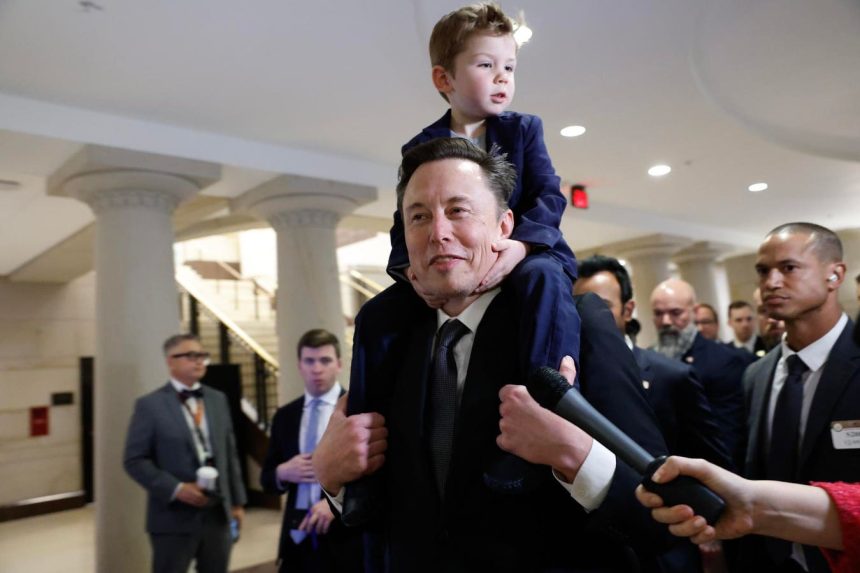The Impasse Over Online Child Safety and the Unexpected Endorsement of KOSA
The digital age has ushered in unprecedented opportunities for connection and learning, yet it has also exposed children to a myriad of online dangers, ranging from cyberbullying and predatory behavior to harmful content and addictive algorithms. The debate over how to protect children in the online sphere while safeguarding free speech and privacy has reached an impasse, with tech companies, lawmakers, and advocacy groups struggling to find common ground. Into this contentious landscape stepped an unlikely advocate: Elon Musk, the billionaire entrepreneur known for his staunch defense of free speech. His recent endorsement of the Kids Online Safety Act (KOSA), alongside X CEO Linda Yaccarino, has injected new momentum into the stalled legislation and sparked both hope and skepticism.
KOSA, co-authored by Senators Marsha Blackburn and Richard Blumenthal, aims to create a safer online environment for minors by requiring platforms to implement stronger safeguards against harmful content and provide parents with greater control over their children’s online activities. The bill passed the Senate earlier this year but faced significant opposition in the House, primarily from those concerned about potential censorship. With mere weeks remaining in the current legislative session, Musk’s endorsement, coming on the heels of the election, carries significant weight and could potentially tip the scales in favor of KOSA’s passage. This endorsement is particularly noteworthy given the tech industry’s generally hesitant stance towards online safety regulations, making Musk’s support a potential game-changer.
A Mother’s Plea and the Tech Industry’s Responsibility
Kristin Bride, whose 16-year-old son tragically took his own life after enduring relentless cyberbullying on Snapchat, has become a powerful advocate for stronger online safety measures. She argues that the current lack of robust protections leaves children vulnerable to serious online harms, emphasizing the urgency of passing KOSA. Bride’s personal tragedy underscores the real-world consequences of inaction and highlights the desperate need for a collaborative effort to address this growing crisis. Her testimony before Congress and her tireless advocacy work have brought a human face to the often abstract debate surrounding online safety.
While Musk’s endorsement has garnered considerable attention, the tech industry remains divided on KOSA. Some experts believe that his support, coupled with the growing public awareness of online dangers, could be enough to propel the bill through Congress. Others remain skeptical, pointing to Musk’s controversial track record on free speech and the potential conflicts of interest arising from his ownership of a major social media platform. The challenge lies in finding a balance between protecting children and respecting privacy and free speech rights, a delicate equilibrium that has eluded lawmakers and tech companies for years.
The Challenges of Implementation and the Need for Collaboration
Even if KOSA passes, significant challenges remain in its implementation. Developing effective tools for content moderation, age verification, and parental control requires substantial investment and technological expertise. Moreover, striking a balance between user experience and safety remains a complex issue, with concerns that overly restrictive measures could stifle innovation and limit access to valuable online resources. Experts argue that a multi-stakeholder approach, involving tech companies, regulators, educators, and cybersecurity professionals, is crucial for developing comprehensive and workable solutions. This collaboration must prioritize the development and implementation of effective tools while ensuring that they do not unduly infringe on fundamental rights.
Critics of KOSA argue that the bill’s broad language could lead to unintended consequences, such as censorship of legitimate content and increased surveillance of online activity. Privacy advocates have also raised concerns about the potential for data breaches and misuse of personal information. Furthermore, some argue that KOSA places undue burden on smaller platforms and startups, which may lack the resources to comply with its requirements. Addressing these concerns requires careful consideration and potential revisions to the bill, ensuring that it effectively protects children without stifling innovation or compromising fundamental rights.
Conflicting Voices and the Search for Solutions
Musk’s unexpected endorsement of KOSA has ignited a debate about the role of tech leaders in shaping online safety policies. While some see him as a powerful advocate for change, others question his motives and credibility, given his controversial stance on free speech and the reported increase in hate speech on X since his takeover. Critics argue that a genuine commitment to child safety requires a collaborative and transparent approach, involving not only tech companies but also parents, educators, and child safety experts. They emphasize the need for solutions that are grounded in evidence and designed to address the root causes of online harms, rather than simply imposing top-down regulations.
The debate over KOSA highlights the complex and often conflicting interests at play in the online safety landscape. Finding a path forward requires open dialogue, compromise, and a shared commitment to protecting children while preserving fundamental rights. While KOSA may not be a perfect solution, it represents a significant step towards creating a safer online environment for minors. The ultimate success of this legislation, however, will depend on its effective implementation and the ongoing collaboration of all stakeholders. The hope remains that, despite the challenges and controversies, a consensus can be reached that prioritizes the well-being of children in the digital age.



